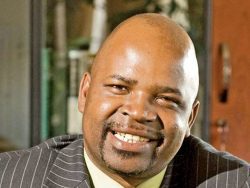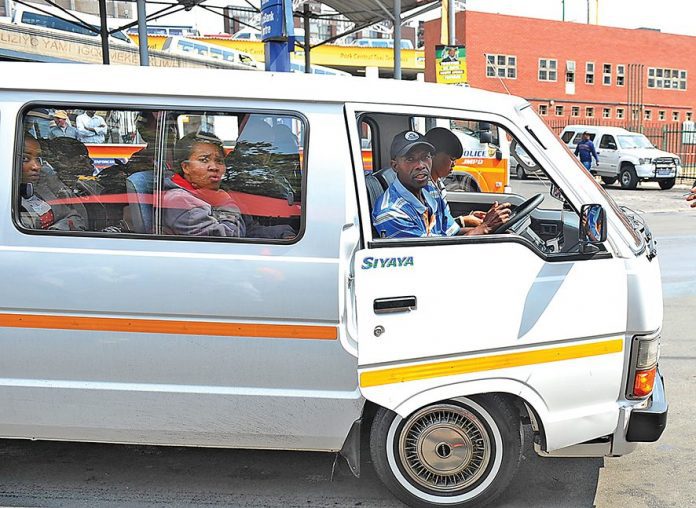Johannesburg – In a chapter on the future of work, historian of technology Yuval Noah Harari suggests that the time has come when we should, with all seriousness, be saying to our young: “When you grow up, you might not have a job.”
In saying this, Harari is not talking about the rising tide of unemployment.
On the contrary, he is talking about the end of jobs as we have come to know them. He argues that automation and robotics will fundamentally redefine many familiar jobs.
This is a difficult conversation that evokes the primordial fears, virtually written into our genes, about a coming war between humans and machines.
[membership level=”1″]From the earliest days when Homo Sapiens made their first tools, uncomfortable questions emerged. Would the group with the biggest tools rule the rest? Could the tools turn the tables on the toolmaker one day?
In the midst of much superficial hype about the 4th Industrial Revolution, we forget how excitingly traumatic the relationship between humans and technology can be.
I guess that the riveting mixture of fear and excitement is what made us flock to watch such sci-fi movies as the Matrix, Avengers, Blade Runner and The Terminator.
Hype and irrational fears aside, we have to come to grips with the fact that the vocations, trades and professions of long ago are no longer what they used to be.
Machine learning, communication technologies, robotics and artificially intelligent (AI) systems have invaded our world more efficiently than any imaginary army of Schwarzenegger-size terminators ever could.
Upon reading the job adverts section of digital newspapers off our two terabyte mobile devices on Sunday afternoon in January 2045, we will find that many of the jobs we grew up taking for granted no longer exist.
The chauffeur and taxi drivers will find that self-driving cars have put them out of business. Siri and Alexa will seamlessly replace tourist guides, car guards, and hotel receptionists.
Similarly, the jobs for aircraft on-board engineers, car mechanics, general practitioners and trade union shop stewards will no longer be advertised in 2045.
Robots will do these better.
Like the typists of yesteryear; personal assistants, secretaries and minute-takers will be obsolete.
Artificially intelligent apps and gadgets will manage diaries and tasks predictively and more efficiently.
There will be algorithms that do much better than human interpreters, translators, copywriters, copy editors in terms of accuracy, proficiency and robustness.
Some professions such as medical practice, clinical psychology, teaching, project management, journalism, farming, auditing and detective policing will change so fundamentally they will hardly resemble their former selves.
There will soon be very few human jobs, if any, which will not be partially or wholly doable by machines. And soon enough, if not already, robots may learn how to persuade and instigate people.
Does this mean that the machines are taking over? Not really. Rather, it is humans who are taking over because humans build the machines.
For now, only a minority of human beings are at the forefront of the tremendous changes in the workplace.
This is where education comes in. A well-designed and aptly deployed education system is the great equaliser.
We may not exactly tell our young that they will grow up to have no jobs. But we should immerse them in an education system that prepares them for the jobs of the future.
We must design and equip our universities and colleges as centres of excellence in which students and staff engage in the origination and shaping of the future of work.
Indeed, we may not wish to indoctrinate our young with the Yuval Noah Harari mantra of:
“When you grow up, you might not have a job”, but build on Nina Simone’s message to the youth of her time when she sang: “You are young, gifted and black.” We must inspire our young to cease being bystanders and consumers.
They must become leaders and shapers of the new world of technology that is unfolding. There are a million jobs that never existed before, waiting to be invented, ready to be taken.
The jobs of the future are already blowing in the wind.
Drone fleet sequencer, AI ethicist, data wellness coach, robot recruitment agent, self-driving car traffic cop, anyone? Going, going, gone!
- Professor Maluleke is the incoming Vice-Chancellor of the Tshwane University of Technology. He writes in his personal capacity.

Follow @SundayWorldZA on Twitter and @sundayworldza on Instagram, or like our Facebook Page, Sunday World, by clicking here for the latest breaking news in South Africa. To Subscribe to Sunday World, click here
Sunday World
[/membership] [pmpro_signup submit_button=”Register” level=”1″ login=”1″ redirect=”referrer” short=”false” title=”Thank you for choosing Sunday World, to read this article for free, please register below at no cost.” short=”true” custom_fields=”true”]


